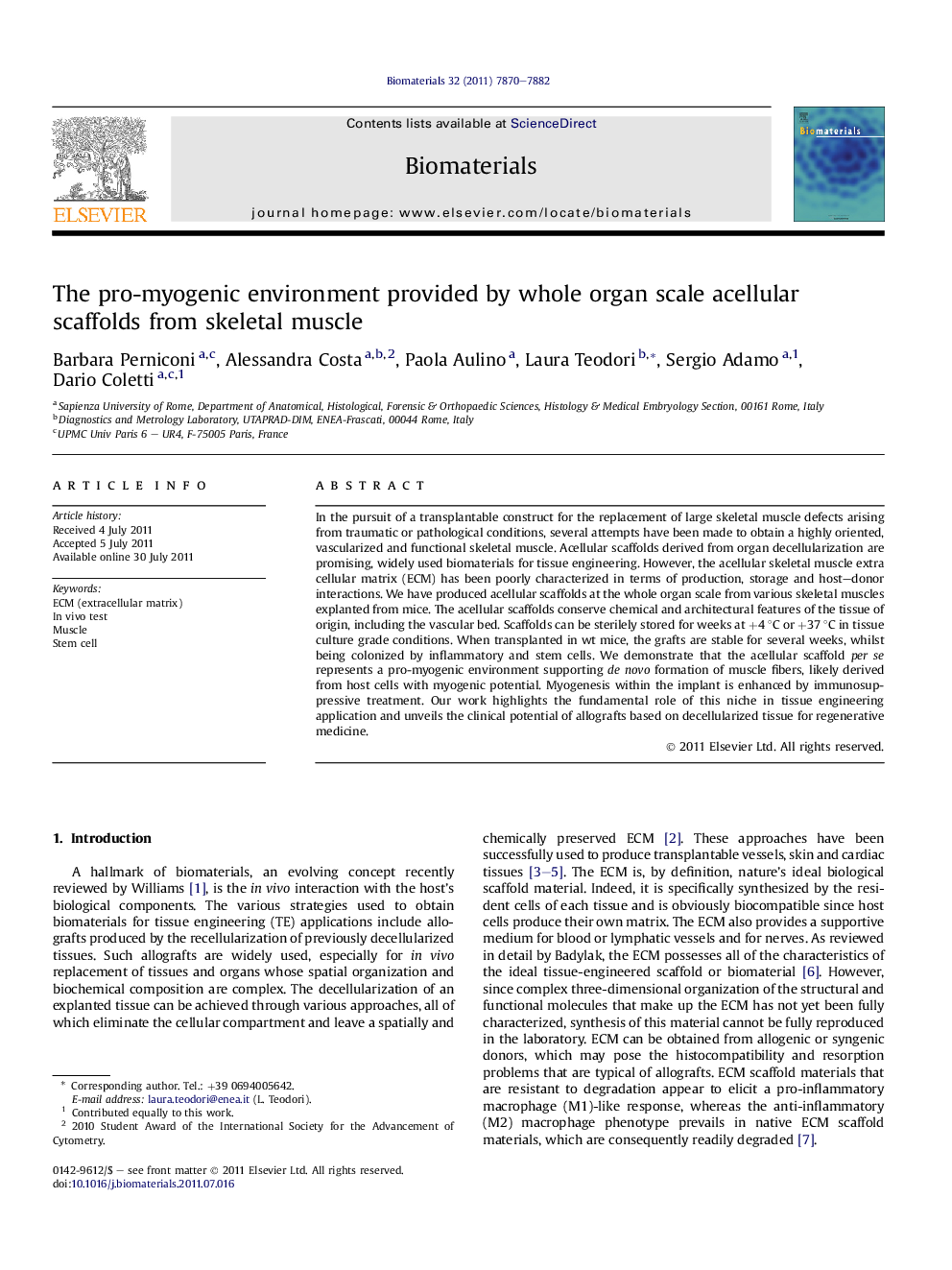| Article ID | Journal | Published Year | Pages | File Type |
|---|---|---|---|---|
| 7192 | Biomaterials | 2011 | 13 Pages |
In the pursuit of a transplantable construct for the replacement of large skeletal muscle defects arising from traumatic or pathological conditions, several attempts have been made to obtain a highly oriented, vascularized and functional skeletal muscle. Acellular scaffolds derived from organ decellularization are promising, widely used biomaterials for tissue engineering. However, the acellular skeletal muscle extra cellular matrix (ECM) has been poorly characterized in terms of production, storage and host–donor interactions. We have produced acellular scaffolds at the whole organ scale from various skeletal muscles explanted from mice. The acellular scaffolds conserve chemical and architectural features of the tissue of origin, including the vascular bed. Scaffolds can be sterilely stored for weeks at +4 °C or +37 °C in tissue culture grade conditions. When transplanted in wt mice, the grafts are stable for several weeks, whilst being colonized by inflammatory and stem cells. We demonstrate that the acellular scaffold per se represents a pro-myogenic environment supporting de novo formation of muscle fibers, likely derived from host cells with myogenic potential. Myogenesis within the implant is enhanced by immunosuppressive treatment. Our work highlights the fundamental role of this niche in tissue engineering application and unveils the clinical potential of allografts based on decellularized tissue for regenerative medicine.
